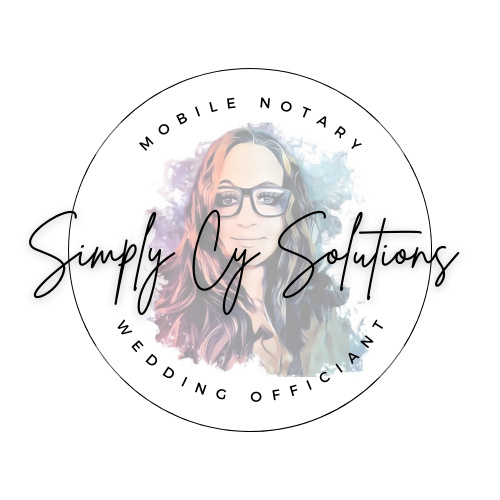Notarizations and Identity Verification
In a world where transactions and agreements are increasingly digital, the role of notarization and identity verification has taken center stage in ensuring the authenticity and legality of documents. Whether you're signing a real estate contract, a will, or a power of attorney, having your signature notarized adds an extra layer of security and credibility. But have you ever wondered how notaries verify your identity, what types of identification are accepted, and why this step is crucial in preventing fraud? Let's dive in and demystify the world of notarization.
Think of notaries as the guardians of document authenticity. A notary public is a legally authorized individual (by the Secretary of State) who acts as an impartial witness to the signing of important documents. Their role is to ensure that the parties involved are who they claim to be, and that they're signing the document of their own free will. Contrary to some beliefs, the notary is not there to verify the contents of the document.
The Identity Verification Process
So how does a notary verify the identity of the individual signing? They use a multi-step process to verify the identity of signers, which involves checking the signer's identity documents and confirming their identity:
Physical Presence: The signer must be physically present during the notarization process. This prevents someone from signing on behalf of another person.
Acceptable Identification: Notaries typically require a government-issued photo ID, such as a driver's license, passport, or state ID card. These documents are trusted sources of identification and are difficult to forge. If the notary feels like the document used to verify identity is forged, they have the right to refuse the document and request another form of identification.
Document Inspection: The notary will carefully inspect the ID to ensure it's valid, unexpired, and contains the signer's photograph and signature. This helps prevent the use of fake IDs.
Personal Knowledge: In some cases, a notary who personally knows the signer may vouch for their identity. However, personal knowledge alone is often not sufficient and is combined with other verification methods.
Electronic Verification: With technological advancements, notaries can also use electronic identification verification services to ensure the authenticity of the ID presented.
Types of Identification Accepted
Accepted forms of identification can vary depending on local laws and regulations. Generally, government-issued IDs are preferred due to their higher security features. These can include:
Driver's licenses
Passports
State ID cards
Military IDs
National identification cards
Preventing Fraud: Why It Matters
The meticulous process of notarization and identity verification is not just a bureaucratic hurdle. It plays a pivotal role in preventing fraudulent activities and protecting the interests of all parties involved. By confirming the signer's identity, notaries ensure that:
Unauthorized individuals can't forge signatures on important documents.
Parties can't be coerced or manipulated into signing something against their will.
Legal agreements hold up in court, as they have been executed with proper oversight.
In essence, notarization adds a level of assurance that the documents you sign are genuine and legally binding. This is particularly crucial for sensitive transactions such as property transfers, financial agreements, and estate planning.
Notaries help to ensure that the identity of the signer is legitimate, and that the signer is signing the document of their own free will. The job of a notary is to safeguard against fraud and upholding the credibility of important documents.
Remember that these blog posts are intended to help you navigate the world of notary. However, please make sure to verify the required identity verification documents and rules and regulations for the state you’re commissioned in.
I am not a lawyer and cannot give legal advice.
I decided to start blogging to provide access to educational information to new and seasoned Notaries Public and Wedding Officiants and their clientele to improve service to each population.


